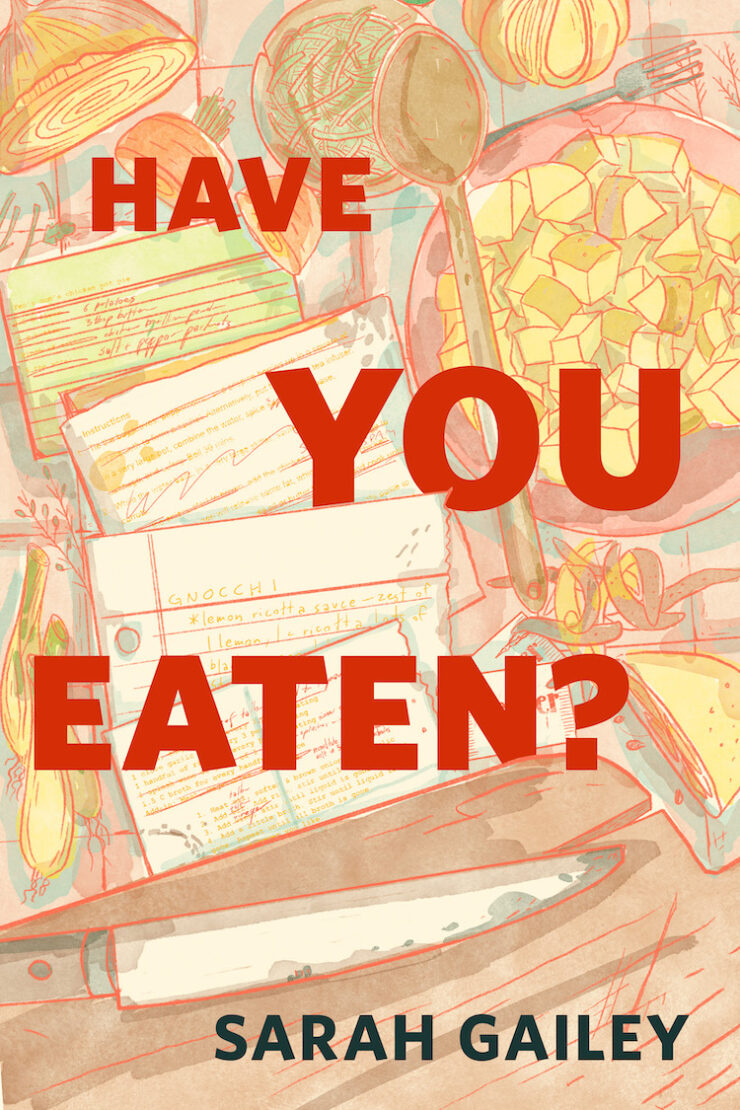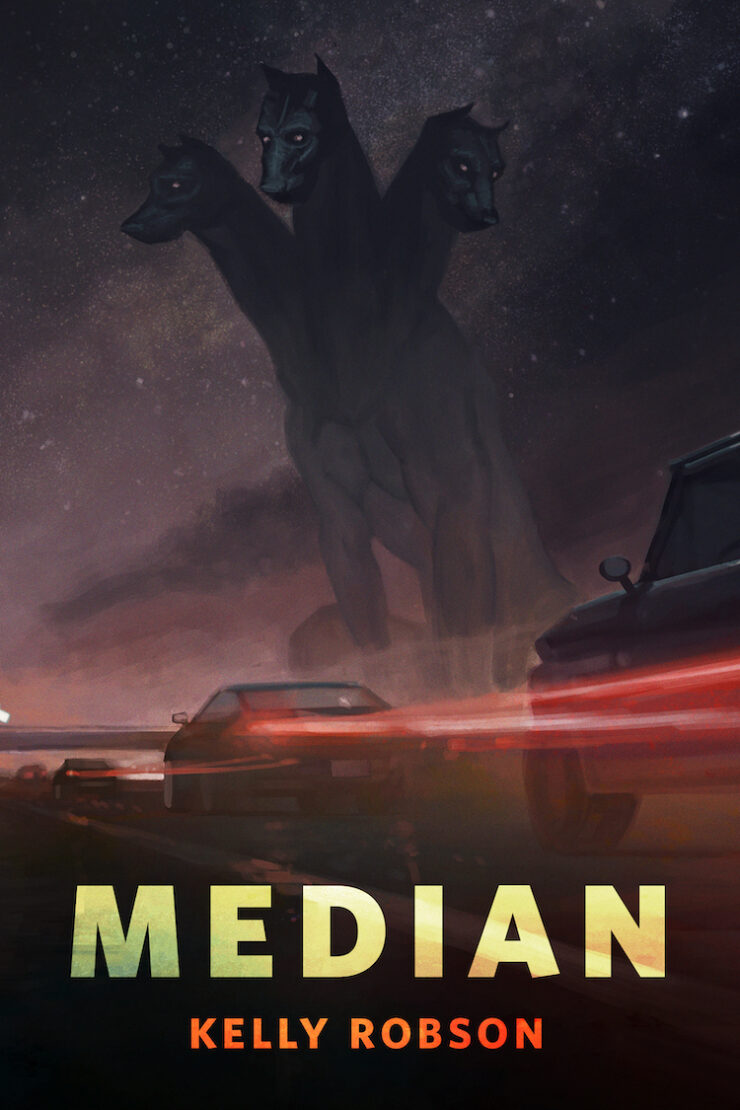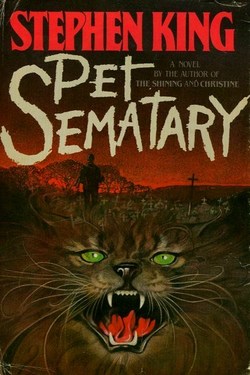Rarely is revenge so sweet. Stephen King’s Pet Sematary is notorious for being the book that King thought was too scary to be published, and that one idea became its entire marketing campaign when King refused to do any interviews or publicity to support it. He refused not because Pet Sematary was “too scary,” but because it was his final flipped bird to Doubleday. It was a contractual obligation book that had been sitting in a drawer for years that he only released grudgingly and, strangely enough, it became his first mega-blockbuster. The last Stephen King book Doubleday had published was The Stand and they’d barely printed 50,000 copies, while holding their noses. This time they acknowledged his success by printing ten times that number and rolling out a massive ad campaign. But it was about more than just revenge. In an interview given one year after Pet Sematary was released, King said, “If I had my way about it, I still would not have published Pet Sematary. I don’t like it. It’s a terrible book—not in terms of the writing, but it just spirals down into darkness. It seems to be saying that nothing works and nothing is worth it, and I don’t really believe that.” Really? Because that’s what he’s been writing about all along.
Not since The Shining had a book been rooted in events so close to King’s own life. In 1978, the same month that Doubleday released The Stand, King moved his family to Orrington, Maine so that he could spend a year teaching creative writing at the University of Maine, Orono as a way of giving back to his alma mater. Their house was on the edge of Route 15, a heavily trafficked road, and King and his wife, Tabitha, were constantly worried that their youngest son might run out into traffic. It turned out that it wasn’t his son he had to worry about. On Thanksgiving Day a car killed his daughter’s cat, Smucky, leaving her so upset that King considered telling her that the cat had run away instead. Smucky was buried with full honors at the local pet sematary (misspelled in the original sign) maintained by a group of neighborhood children. The “sematary” had been created communally years before, it was located up a wooded path behind the King’s house, and it was so quiet that King would sometimes take a lawn chair out there to sit and write.
During this period, he began to write Pet Sematary after wondering what would happen if Smucky came back to life. When he was finished he gave the manuscript to his wife who reportedly hated it. He passed it along to Peter Straub who said the same thing. And so King, who had had a hard time writing the book (especially its infamous exhumation scene), put it in a drawer and wrote The Dead Zone instead. He didn’t think about Pet Sematary again until years later when he realized that Doubleday was screwing him.
Back when he signed his boilerplate contract with Doubleday, King had been enrolled in their author investment plan, ostensibly to protect him from taxes. Doubleday, along with several other publishers, would invest their authors’s royalties for them, holding their money in trust and paying them only $50,000 per year. Ten years later, there was a problem: King had too much money. There was $3 million in his Author Investment Plan already, and even if the income on his first four books dropped to zero it would still take Doubleday 60 more years to pay him out at the current rate. He sent them a letter asking for his money back, noting that they were no longer his publisher. Doubleday refused, claiming that without “due consideration” the IRS would force them to return Author Investment Fund monies to all their authors on request. They also helpfully explained what they meant by “due consideration”—they wanted two more books. King, desperate to be shut of them, gave them one: Pet Sematary.
King handed over the manuscript and washed his hands of the matter, refusing to do any publicity or promotion for the book. Didn’t matter. Doubleday bragged about their first printing of 500,000 copies (actually only 335,000 copies) and Pet Sematary went on to sell a smooth 657,000 copies in hardback its first year. The book remains popular with King’s fans both for the obsessive morbidity that runs through it (King did extensive research on burial customs while writing the book) but also for its commitment to follow his dark vision wherever it went. And it went somewhere pretty dark.
The book opens when Louis Creed and his family—wife Rachel, daughter Ellie, toddler son Gage—move from Chicago to a house in Ludlow, Maine where Louis has taken a job as head of the local university’s infirmary. Route 15 passes right by their house, and he and his wife are terrified Gage might run out in the road and get hit by a passing truck. Across the street live the charming, elderly, homespun Jud Crandall and his wife, Norma. The Creeds quickly come to feel like they’ve “come home” and sink into blissful domesticity until Ellie’s cat, Churchill, is hit by a car on Route 15. Knowing Ellie will be devastated by the loss of her pet, Jud takes Louis into the woods to “do him a favor.” The local kids have built and maintained a “pet sematary” (misspelled on their sign) behind the Creed home, on the edge of the enormous North Ludlow Woods, but behind this cemetery is a hidden trail that leads to a secret Native American burial ground built long ago by the Micmac tribe. Louis buries Churchill there, and the cat comes back to awkward life.
Something seems “off” about Churchill, and people instinctively avoid its presence, but Ellie is overjoyed that her cat is alive, even though she complains that he smells bad. Soon afterwards the Creed family’s blissful existence is shattered more finally when Gage runs out in the road and is hit by a truck. Louis sends Rachel and Ellie to her parents in Chicago, secretly exhumes Gage from his grave, and reburies him in the Micmac burial ground. Gage comes back to life as a scalpel-wielding monster, kills Jud, kills and eats his mother, and is ultimately killed by Louis. Bereft and shell-shocked, and possibly possessed by the dark forces that animate the burial grounds, Louis buries Rachel there, and the book ends with her coming back from the dead, presumably to kill him.
At first glance, Pet Sematary is little more than an extended riff on W.W. Jacob’s classic horror story “The Monkey’s Paw,” with some EC Comics style grue spread on top. But in the long walk to the Micmac burial ground that Louis and Jud take, the book’s concerns become more than apparent. The walk is a hallucinatory trek through the woods, haunted by phantom sounds, disturbing visions, and ending with an encounter with the Wendigo, a Native American spirit that brings madness and cannibalism in its wake, a creature so enormous that they can barely see past its legs as it moves past them in the woods. The Micmac burial ground has gone “sour” as a result of burying people there who were possessed by this spirit of cannibalism, and the reason the dead come back “polluted” is because of the Wendigo’s influence.
When King was writing Pet Sematary the Micmac Indians were much in the news. In 1980 the United States government finally passed the Maine Indian Claims Settlement, which recognized ownership of Maine lands by Native Americans and gave two recognized tribes $81 million, ostensibly to buy back their lands but more like a pay-off for them to drop their claims to lands which had, until then, been in private hands. It was a hard-fought case that resulted in a lot of tension and the Micmacs were excluded from this settlement until 1992, when they were given $900,000 and equal recognition. These headlines were definitely on King’s mind when he wrote Pet Sematary, and he even has Jud mention to Louis that the North Ludlow Woods, “Ends up going onto those state lands I told you about, the ones the Indians want back.”
Although it’s never explicitly stated, it’s implied that the Micmac burial ground went sour when white settlers came, and while that might sound like projecting anti-colonial politics where they don’t belong, this is something King has been writing about for a long time. Pet Sematary would be the third Stephen King book in which the main characters are somehow cursed by Native Americans: the first was The Shining, with the Overlook Hotel built on Indian burial grounds, the second was Firestarter with the deranged Native American killer, John Rainbird, stalking Charlie McGee, and now Pet Sematary, which follows the familiar arc of the pioneer novel. The Creed family move from urban Chicago to the edge of the unknown wilderness, just like settlers in old cowboy fiction, and Jud even says at one point, “I know it’s funny to say your nice little house there on the main road, with its phone and electric lights and cable TV and all, is on the edge of a wilderness, but it is.” It’s the typical American frontier narrative: here is the safe and warm family home, and just beyond it lies the unsettled wilderness full of dark things. It’s what Nathaniel Hawthorne wrote about on a regular basis, and it’s what King’s been writing about for his entire career.
King’s writing resonates because at its heart is an idea that we all secretly feel is true: our safety is an illusion. No matter how warm and safe the Creed family home feels, it can be invaded at any moment by death. Louis sentimentalizes death as a natural part of life, but when it suddenly reaches out and claims his daughter’s cat, his son, and his wife, his first reaction is to fight it at all costs. His being at peace with death was a lie, and so was his sense of safety. In fact, the Creed family is built on lies. Rachel has kept the death of her terminally ill sister, Zelda, a secret for years because it traumatized her too deeply and now she and her parents pretend her sister never existed, convinced that this shameful secret will destroy their family if it’s talked about. Louis, for his part, has kept secret his father-in-law’s attempt to bribe him not to marry Rachel. Their family unit only feels safe and secure as long as they keep these secrets from one another. As long as they don’t think about the Micmac burial ground behind their house. As long as they don’t think about death.
Even Jud and Nora Crandall’s 50-year marriage, which Louis and Rachel idolize, turns out to be built on lies. When the dead come back from the Micmac burial ground they are possessed by secret knowledge that they use to torment the living. When Gage comes back from the dead he reveals that not only was Jud secretly visiting prostitutes throughout his marriage, but Nora was having an affair with more than one of Jud’s friends. Neither ever learned the others’s secret, and so it seems their marriage wasn’t built on love and devotion, but secrets and lies. (There is no reason to doubt Gage, since these revenants have never lied before in the book.)
This could all be read as an uncomfortable othering narrative: nice white people settle down and an evil native curse ruins their lives. But King makes it explicit that the evil is the result of the settlers, not the indigenous people. The settlers were the ones who made the land go sour in the first place. As Jud says repeatedly to Louis, “What you bought, you owned, and what you owned eventually came home to you.” We bought America, and the parts of it we spoiled are the parts we own, and eventually we’ll have to pay for them. But there’s also a more subtle idea here, and it’s part of what animates so many of King’s books. The land is older than we are, and while most of it can be divided up into plots and lots, there are other parts that resist this division. There are indeterminate parts of the land that fall between the borders, and they were part of the sale, too.
The Wendigo personifies this kind of indeterminate existence. It’s referred to as a disembodied curse, as a giant monster, as a hallucination, and as the spirit of cannibalism. It exists as several things at once, it is between boundaries, neither fully alive nor dead, neither here nor there. In King’s books there are always these kinds of places where the borders blur. The Overlook Hotel is one of them, the Dead Zone that Johnny sees in his dreams is another, the club at 249B East 35th Street in “The Breathing Method” is a third. There are also characters who blur, like Randal Flagg in The Stand, turning from man to devil to crow, or any of King’s characters, Louis Creed included, who start out as one thing (a nice all-American boy, a devoted husband) and wind up as another (a political assassin, a murderous Nazi-worshipper, a man who causes the death of his entire family). In King’s fiction, a secure identity, one that’s stable and reliable, usually turns out to be a lie that we believe in because it’s convenient, not because it’s an immutable fact.
King’s point has always been that there are older forces out there, forces that came with the territory, and they’re right beneath the surface, waiting to claim us when they’re ready. Therefore, it’s not horror that is the act of imagination but our reality—family, home, economic security—that is imaginary. These things exist purely as an act of faith, we believe in them against the evidence of our senses. Because if we don’t then we look down and see that there’s nothing to keep us from falling screaming into the void. The line that separates human from monster, life from death, or best-selling author living in a mansion from penniless drunk living in a mobile home, is always far, far thinner than we think. In fact, it’s pretty much just a figment of our imaginations. And as a toiler in the fields of the imaginary, that’s something Stephen King understood better than most.
Grady Hendrix has written about pop culture for magazines ranging from Playboy to World Literature Today. He also writes books! You can follow every little move he makes over at his blog.










